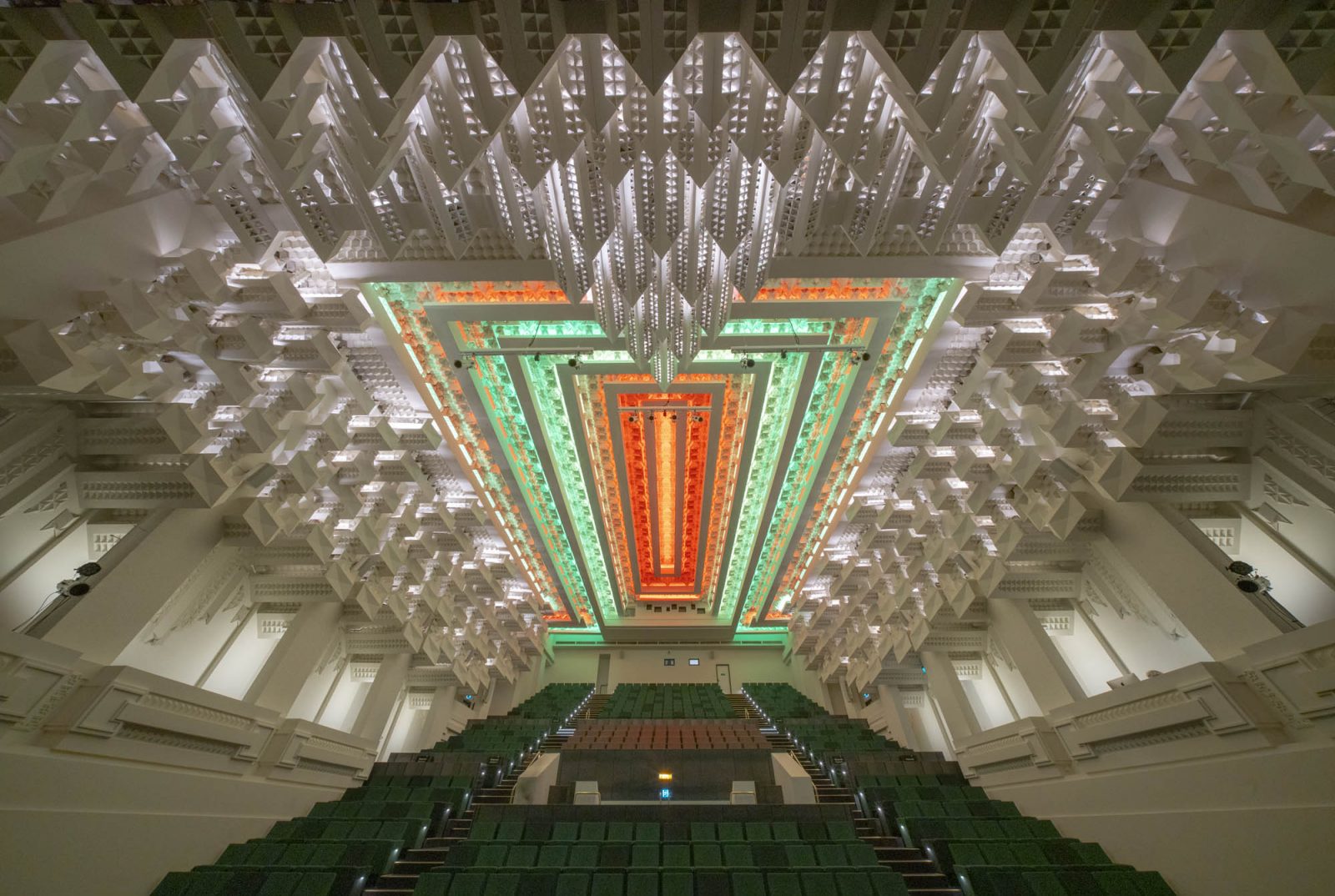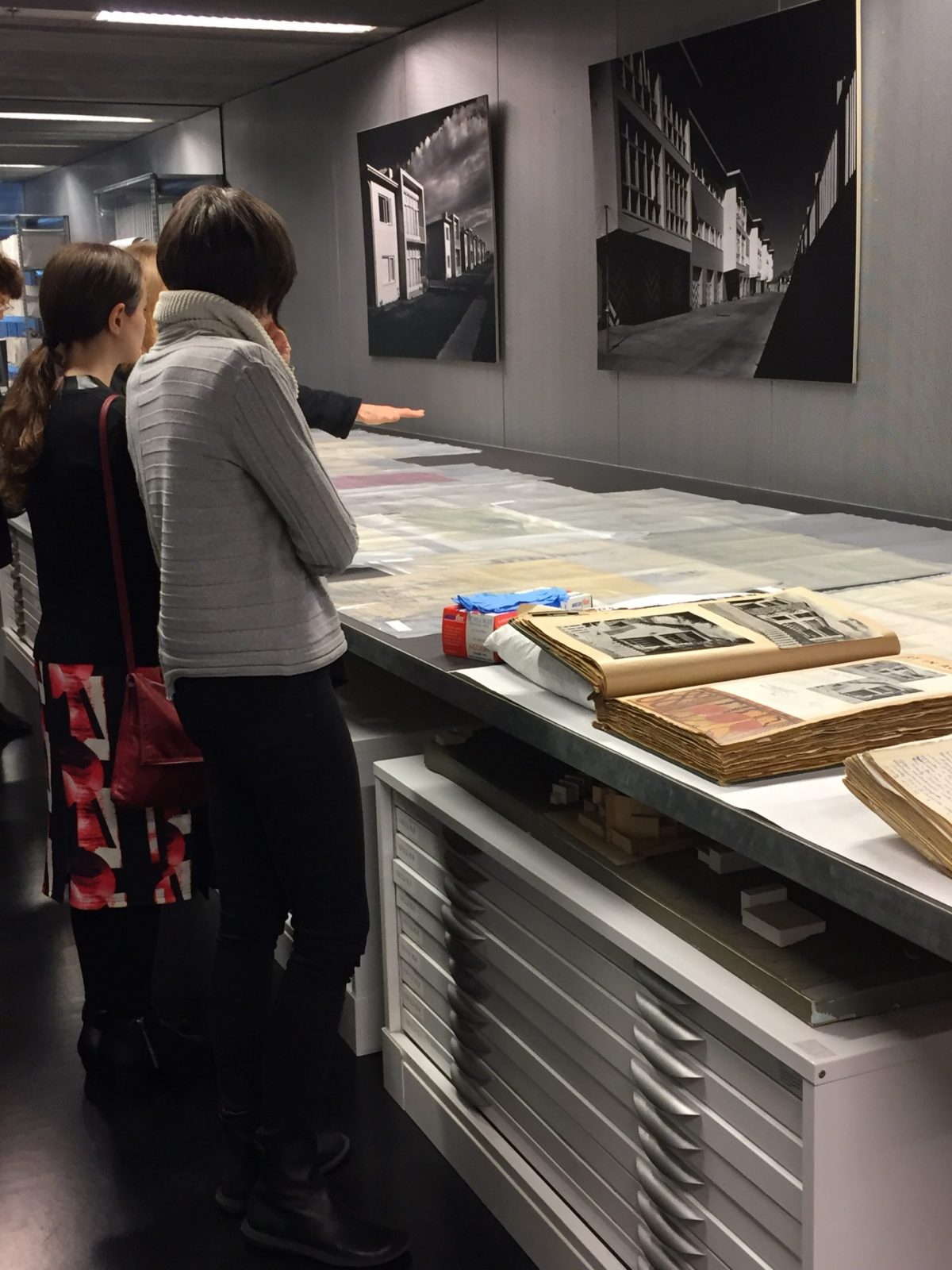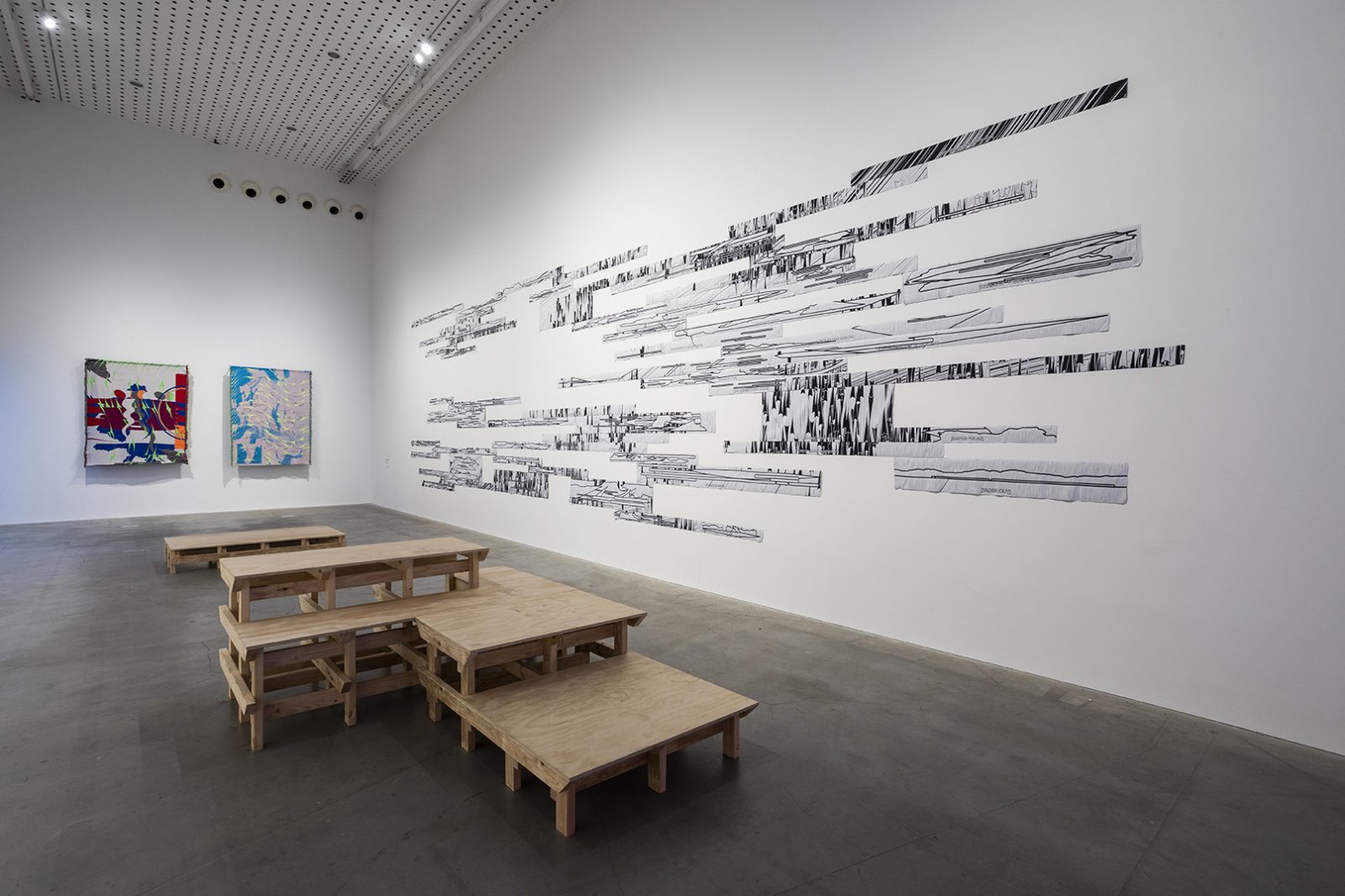
Open House Melbourne: peek inside RMIT Culture’s ‘virtual’ doors
Open House Melbourne is a highlight on the calendar for art and design enthusiasts. Due to COVID-19 restrictions, doors may be physically shut but access to RMIT’s landmark buildings will be digital.
The Capitol and Building 100, home to the RMIT Design Hub Gallery and the RMIT Design Archives, will be available via virtual tours and online talks engaging with timely issues about design and the built environment.
Paula Toal, Head of Cultural and Public Engagement, said that RMIT’s cultural spaces are not only renowned for their architectural significance, they also provide opportunities to inspire conversation and critical debates about how we live and use the city now and in the future.
“In the face of restrictions and temporary closures, RMIT’s cultural areas are more open than ever offering access online and providing inspiring digital projects and platforms for the entire community.”

John Gollings, photographer.
The Capitol ceiling and theatre.
2019.
The Capitol
Step backstage and (virtually) explore The Capitol’s hidden corners with Peter Malatt, architect and founding director of Six Degrees Architects, and Professor Martyn Hook, Dean, School of Architecture and Urban Design, RMIT with The Capitol’s live-streamed architectural tour and Q&A, offering deeper insights into the iconic building’s history and magic.
The digital tour will offer a truly intimate look inside The Capitol, with guides to take you behind-the-scenes, through curving staircases, historic serveries and galleys, and spaces not usually accessible to the public. Stare up at the awe-inspiring ceiling, peek behind the stage at some of the historic light fittings and ogle the foyer’s lush geometric carpet – without ever leaving your couch.
Date: Saturday 25 July
Time: 11am
Bookings: FREE, but bookings required via Eventbritehere. By registering you can pre-submit a question to the architects.

RMIT Design Archives, Australian Museums and Galleries Australia visit, 2018, Photographer Ann Carew
The RMIT Design Archives
With research visits usually by appointment only, Open House Melbourne offers a chance to peek into the RMIT Design Archives and explore the exemplary collections of Melbourne’s most important and influential post-war designers.
The Design Archives collection is unique among Australia’s collecting institutions for its exclusive focus on design practice across all disciplines. It is located in the distinctive and award-winning Building 100, which received the Victorian Architecture Medal and the William Wardell Award at the 2013 Victorian Architecture Awards.
Go inside (online) with your guides Ann Carew, Curatorial Officer, Harriet Edquist, Professor of Architectural History, and Simone Rule, Archives Officer.
Following the tour, join designer Stephen Banham and contributors Roger Benjamin, Peter Downton, Stuart King, and Michael Spooner in a discussion of design, Melbourne architecture and architectural education at RMIT to celebrate the launch of the RMIT Design Archives Journal, Vol. 10 No. 1, 2020, a special issue on Architecture edited by Harriet Edquist, AM.
Date: Saturday 25 July
Times: 11am until 11.45 am – online Archive and Collections tour.
12 – 12.30 pm: Discussion and Journal launch.
Link to live events: click here

RMIT Design Hub Gallery
Our altered experience of time through digital media is more heightened than ever, as we navigate the endless uncertainty of the COVID-19 global pandemic. Join RMIT Design Hub Gallery curators Kate Rhodes and Fleur Watson, Amsterdam-based artists, filmmakers and designers, Metahaven, and Metahaven: Field Report guest curators Megan Patty and Brad Haylock in an online discussion, as they reflect upon Field Report from the perspective of this new reality.
Metahaven: Field Report is an exhibition reflecting upon today’s condition of information overload. Everybody has become a broadcaster, designer, filmmaker, prosecutor, judge, key witness, perpetrator and storyteller. This is not merely a political and social fact, but an aesthetic and cinematic regime. Propaganda is now a lived reality, necessitating novel forms of media literacy.
Online discussion: Reflecting on Metahaven: Field Report
Date: Tuesday 28 July
Time: 5pm-6pm AEST
FREE: no bookings required
Event link: click here
Story by Evelyn Tsitas
